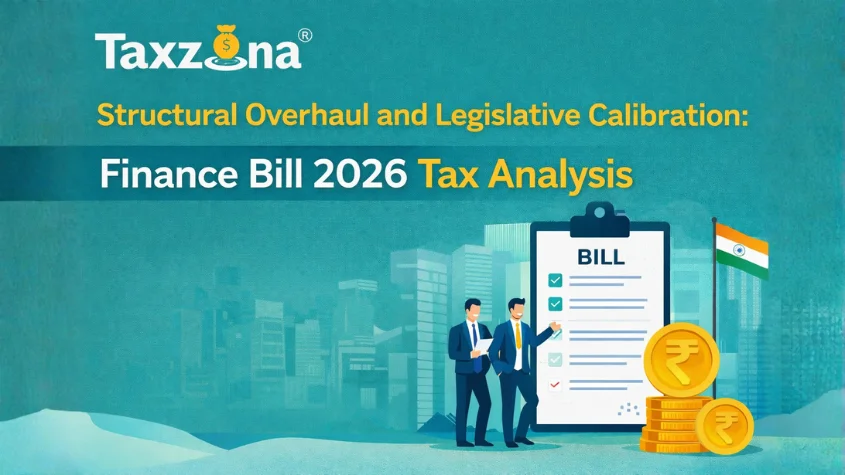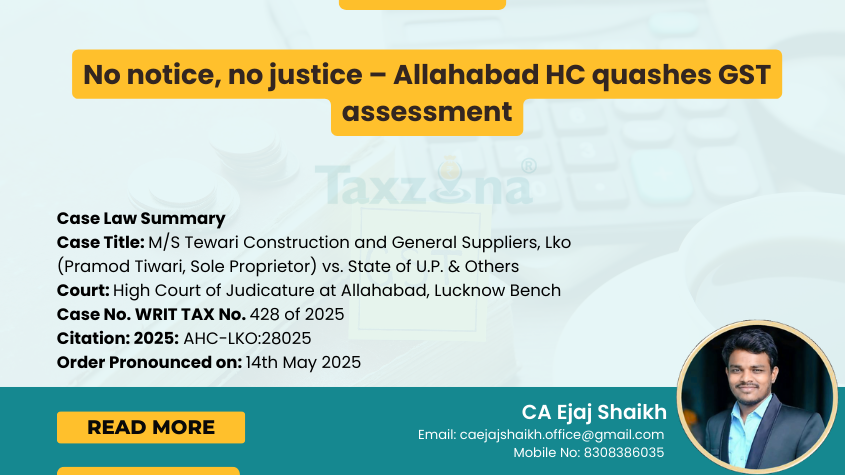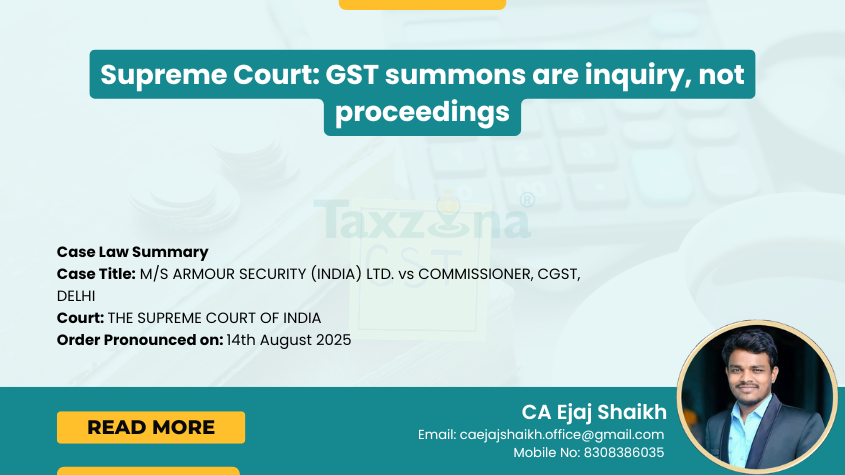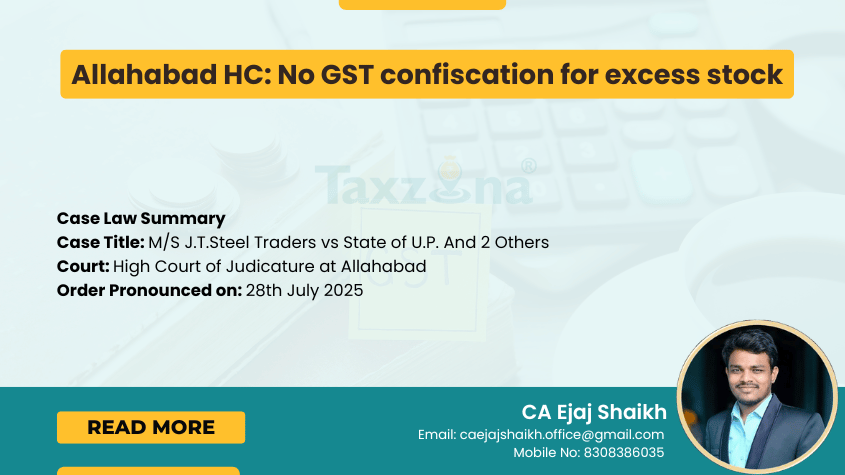
Allahabad HC Quashes GST Assessment for Lack of Notice

1. Issue Involved
- The primary issue in the case was whether the assessment order passed under Section 62 of the GST Act was legally sustainable when the mandatory notice under Section 46 was not served upon the petitioner, and when the assessment order lacked any reasoning or reference to supporting material.
- Additionally, the case also involved the legality of the appellate authority dismissing the appeal on the ground of limitation, without addressing the fundamental procedural lapses in the original assessment.
Facts of the Case
- The petitioner, M/s Tewari Construction and General Suppliers, Lucknow, through its sole proprietor Pramod Tiwari, filed a writ petition before the Hon’ble Allahabad High Court (Lucknow Bench), challenging two orders:
- the best judgment assessment order dated 27.08.2019 passed under Section 62 of the GST Act, and
- the appellate order dated 29.01.2025 dismissing the appeal as barred by limitation.
2. The petitioner contended that no notice under Section 46 was ever served, which is a precondition for initiating proceedings under Section 62.
3. Further, the assessment order did not disclose any reasoning or material forming the basis of the assessment.
4. The petitioner also argued that no opportunity of hearing was granted prior to finalising the assessment. The respondent authorities defended the order on the ground that Section 62 permits such assessments and stated that the appeal was rightly dismissed as time-barred.


3. Observations of the Court
- The Hon’ble Court, after hearing both sides, carefully examined the scheme of Sections 46 and 62 of the GST Act. The Court observed that Section 62 empowers the assessing authority to pass a best judgment assessment only when the registered person fails to file returns under Section 39 or 45, even after being served a notice under Section 46.
- The service of notice under Section 46 is thus a statutory prerequisite. Moreover, Section 62 also requires the assessment to be made on the basis of available or gathered material, with appropriate reasoning.
- In the present case, the Court noted that there was no record or proof of service of notice under Section 46, and the assessment order itself lacked any reasoning or reference to supporting documents or material.
- The Court held that the procedure followed by the assessing authority was in clear violation of the mandatory provisions of the GST Act.
4. Judgment of the Court
- The Hon’ble High Court held that both the assessment order dated 27.08.2019 and the appellate order dated 29.01.2025 were unsustainable in law.
- It was held that the failure to serve notice under Section 46 and the absence of any reasoning or reference to material in the assessment order constituted serious procedural lapses. As a result, both orders were quashed.
- The Court remanded the matter back to the Assessing Authority with clear directions to:
- issue a notice under Section 46,
- provide the petitioner an opportunity for a hearing, and
- pass a fresh, reasoned assessment order in accordance with the law.
6. Key Learnings from the Judgment
This judgment reiterates some important legal principles.
- First, notice under Section 46 is a mandatory procedural safeguard before initiating assessment under Section 62.
- Second, best judgment assessments must be based on actual material and must include reasoned findings, failing which they are liable to be struck down. Third, non-compliance with natural justice, including denial of hearing and absence of reasoning, renders the proceedings invalid.
- Finally, the judgment demonstrates that appellate dismissal on technical grounds like limitation cannot cure jurisdictional and procedural defects in the original order.
7. Conclusion
In conclusion, the High Court’s judgment in this case serves as a firm reminder to the tax authorities that they must strictly adhere to the procedural requirements laid down in the GST Act. The Court protected the rights of the assessee by ensuring that natural justice is not sacrificed in the name of summary assessment.
The remand for a fresh assessment ensures that the petitioner gets a fair opportunity to be heard and assessed in accordance with the law. The decision also acts as a precedent for taxpayers facing unreasonable and ex parte assessments without proper notice.
Recent Post



Have Any Question?
Our experts at Taxzona are here to help you with GST, Income Tax, and all your financial queries. Get reliable guidance tailored to your business and personal needs.

